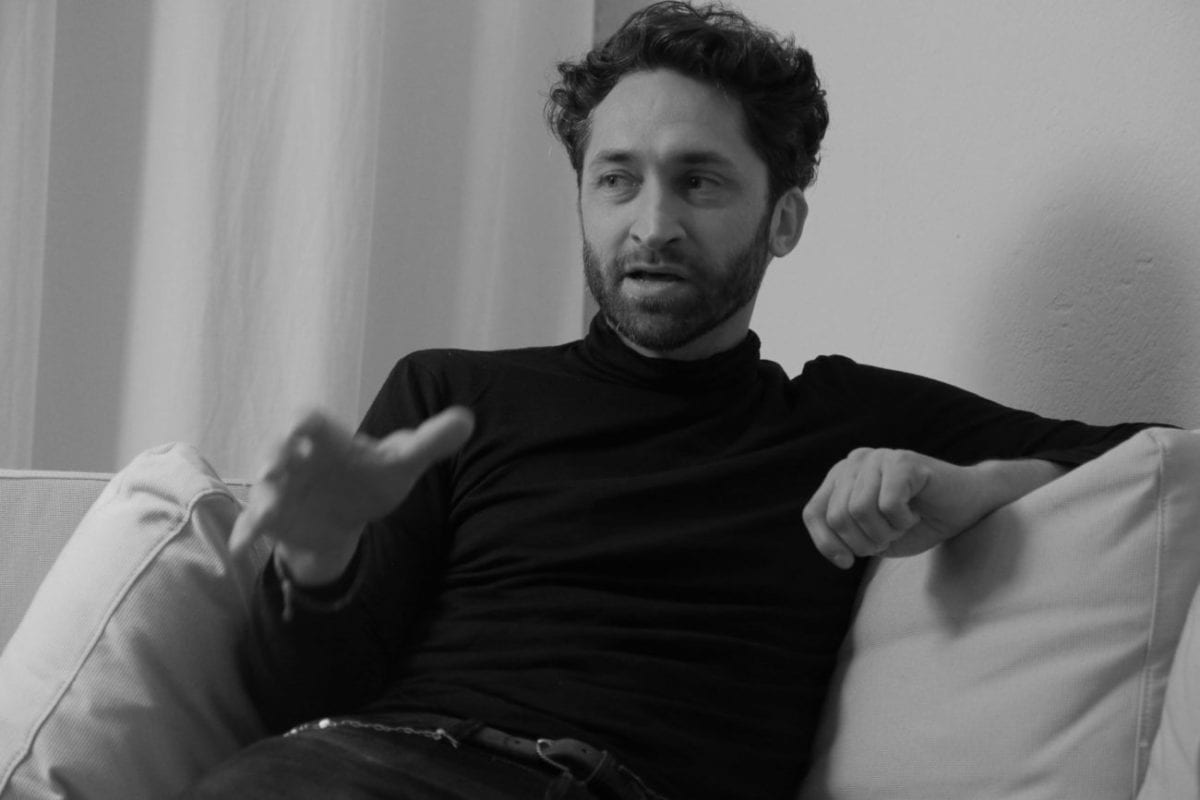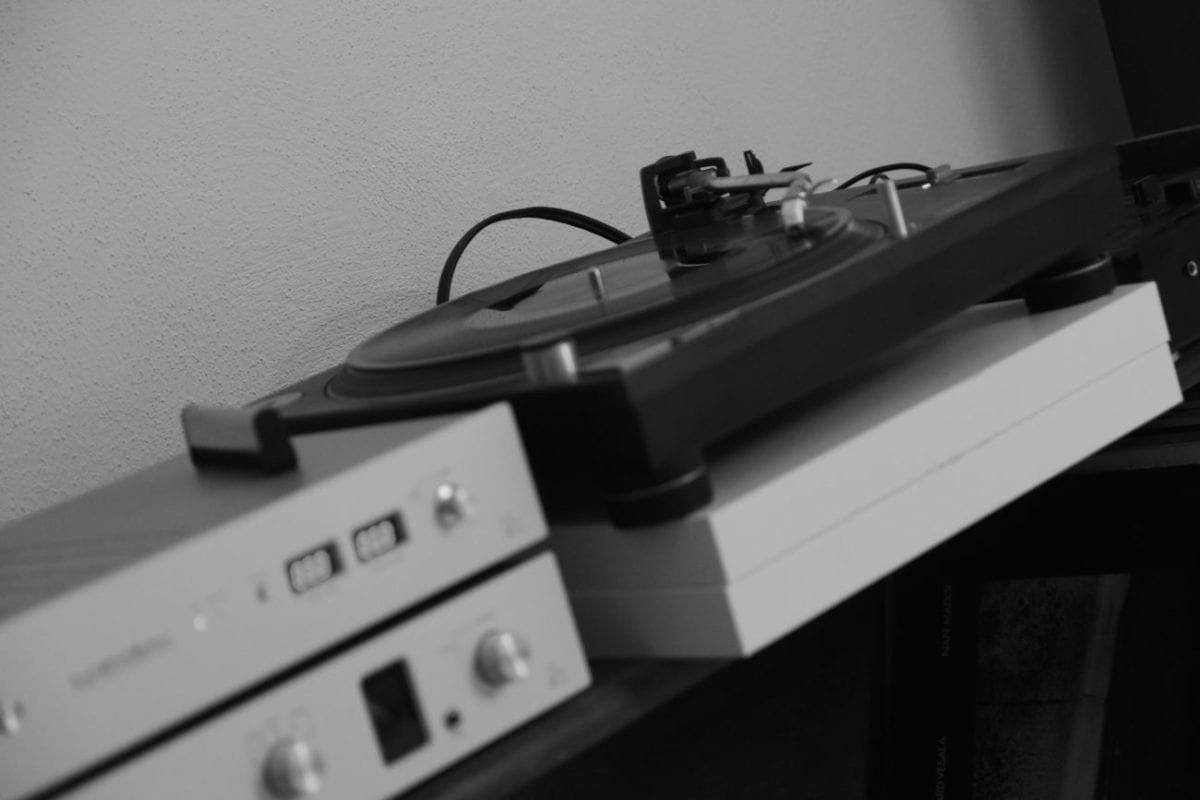
Mist is slowly covering Mauerpark as we head over to Marco Shuttle’s apartment, nested in the cosy neighbourhood of Prenzlauer Berg. The formerly London-based Italian producer just moved to Berlin and his flat reflects a careful attention to subtle details, keeping a kind of minimalism that’s palpable throughout his many releases for Semantica, Spazio Disponibile or his own imprint Eerie.
Ever since I witnessed his mesmeric closing set at Terraforma earlier this year, the idea of having him over for an in-depth talk about his singular path and interests only grew on me as months flew by. On the day of the interview, Marco Shuttle had just come back from an Asian tour. Whilst listening to the immersive sounds of Pierre Favre and Edward Vesala, we came to discuss his experience in this heterogeneous area of the planet – full of controversies and received ideas, different approaches towards techno and house music as well as his production modus operandi.
Interviewed by Vittoria de Franchis Pictures by Bogdan Licar"In Japan they have this obsession with collecting things and a maniacal curiosity about everything."
You just arrived back from a tour in Asia. Could you please tell us about your experiences there?
I’ve been traveling around South-East Asia: in Bali, Singapore, Saigon and Seoul as tour dates, this was my third time in Asia to play and I always come back thinking that I really would love to spend more time in this continent.
First of all we have to differentiate Japan from the rest of Asia when it comes to electronic music since there is a scene there since many years and it is the only Asian country that can be compared to Europe in terms of electronic music consumption. In China and other Asian countries the scene is way smaller and I would say recent although very fast-growing.
In Japan they have this obsession with collecting things and a maniacal curiosity about everything. This brought them to become one of the best places in the world where to buy second hands records: if you want to buy Detroit techno you will find more there than in Detroit.
That’s part of their culture, they import and rebrand. They are incredibly good in repurposing foreign products by adding their own touch, keeping it equally competitive and sometimes even more than the original one.

"Having an aware audience makes a big difference for the vibe of a night."
What are the differences in their approach to techno and house?
In other Asian countries techno is something contemporary. It’s happening now, five years ago there was hardly anything happening; the audience there are mostly expats, there aren’t many who actually know who you are.
It gets to: “there is a European producer doing underground stuff, let’s go”. This is also due to history really, when acid house, club culture boomed in Europe in the Nineties, there was a dictatorship there (and there still is in China although much less tough) so any kind of information from the western world wouldn’t even arrive there.
On one hand there is a very fast growing curiosity and excitement towards electronic music as it is relatively new, there’s an excitement about it, which feels very fresh. On the other hand there isn’t a properly developed awareness or taste for it yet. Having an aware audience makes a big difference for the vibe of a night.
Nonetheless the promoters I played for definitely know their shit and do a great job in this not easy context. It is interesting to play there, experiencing this fresh curiosity and excitement from the crowd.
Cross-borders collaborations are something quite usual lately, as Mark Ernestus’ Ndagga Rhythm Force or Stefan Schneider’s Ogoya & The Dodo’s Women Group… Are you inspired by world music ?
Cross borders collaborations are proving that electronic music isn’t just a genre but is a way of producing music. You can do anything electronically, even with classical music. It’s a system with endless solutions and it’s continuously open to new interpretations.
I reckon it’s a unique genre since it’s not a genre as such, but is a way to get a particular result with sound. I mostly listen to things that are not strictly correlated with what I do…I mean, they are in terms of taste and inspiration, but on a more general level.
What we are listening to now is Tamia and Pierra Favre’s ‘De La Nuit… Le Jour‘ on ECM Records a mostly free/experimental jazz German label and definitely one of my favourite labels out there.
"I mostly listen to things that are not strictly correlated with what I do…I mean, they are in terms of taste and inspiration but on a more general level."
Still I think that one can find these kind of ethereal and non electronic sounds when listening to your music.
I have an unrealistic perception of what I do and I think that in the end some decisions when producing are unconscious. Music always fascinated me as something that evokes a journey, quite often an abstract one.
It’s a very visual approach, almost cinematic. As a listener I have always perceived music as an escape and not as a gathering moment or a media to communicate to the others. As a producer with my music I want to provide the audience with what I enjoy as a listener.
Therefore a set is like a very long trip. Does the same thing happen while producing?
My main purpose when I DJ is to tell a story. I try to do it in the best way I can. I have fun when I realise that I the crowd follows and understands what I am doing. There are of course situations where I feel more emotionally connected than others, but the more I DJ the more I become analytical about what I do and focus on doing it right.
When I work on an album there is an idea, but it takes shape very organically during it’s creation. It is a different approach because it is more “total” and complex. It involves a search for balance between tracks, a cohesiveness that bonds each element as different moments of the same movie. An EP is different, it doesn’t necessitate as much of this narrative tension, it is more of a collection of tracks, so it is easier to feature tracks made in different moments on an EP.
Discover more about Marco Shuttle on Inverted Audio.
Marco ShuttleEerieElectronicHouseTechno